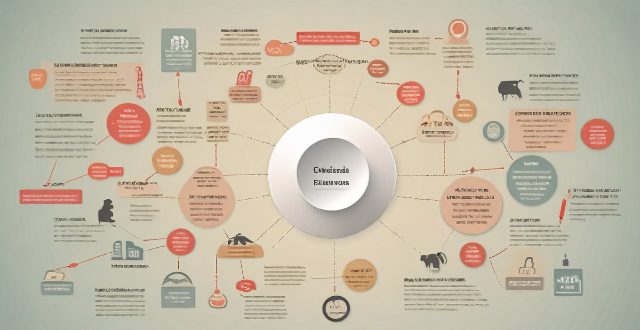Auditors play a crucial role in ensuring the accuracy of Task Force on Climate-related Financial Disclosures (TCFD) disclosures. Their key responsibilities include verifying information, assessing processes, and reporting findings to management and interested parties. By conducting audit procedures such as reviewing internal controls and testing their effectiveness, auditors can help ensure that companies provide reliable and transparent information about their climate-related risks and opportunities. This is essential for investors, regulators, and other stakeholders to make informed decisions.

The Role of Auditors in Ensuring the Accuracy of TCFD Disclosures
Auditors play a crucial role in ensuring the accuracy of Task Force on Climate-related Financial Disclosures (TCFD) disclosures. As financial professionals, they are responsible for verifying the information provided by companies and ensuring that it is true and fair. This includes reviewing and assessing the company's processes for identifying, measuring, and reporting climate-related risks and opportunities.
Key Responsibilities of Auditors in TCFD Disclosures
Verification of Information
Auditors must verify the information provided by companies to ensure its accuracy. They do this by conducting audit procedures such as:
- Reviewing internal controls and processes for identifying, measuring, and reporting climate-related risks and opportunities.
- Testing the effectiveness of these controls and processes.
- Evaluating the reasonableness of assumptions and estimates used in calculating climate-related metrics.
- Assessing the reliability of data sources used in preparing TCFD disclosures.
Assessment of Processes
Auditors must also assess the company's processes for identifying, measuring, and reporting climate-related risks and opportunities. This includes evaluating whether:
- The company has established clear policies and procedures for managing climate-related risks and opportunities.
- The company has appropriately identified and classified its climate-related risks and opportunities.
- The company has developed effective strategies to manage these risks and opportunities.
- The company has implemented adequate internal controls to monitor the effectiveness of these strategies.
- The company has communicated its approach to managing climate-related risks and opportunities to stakeholders.
Reporting Findings
Finally, auditors must report their findings to management and, if applicable, to regulatory bodies or other interested parties. This includes providing recommendations for improving the company's processes for managing climate-related risks and opportunities, as well as highlighting any areas where additional disclosure may be necessary.
Conclusion
In summary, auditors play a vital role in ensuring the accuracy of TCFD disclosures by verifying information, assessing processes, and reporting findings. Their work helps to ensure that companies provide reliable and transparent information about their climate-related risks and opportunities, which is essential for investors, regulators, and other stakeholders to make informed decisions.